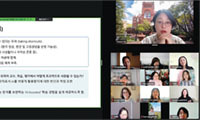Living Conscientiously Means Living Long
Their key to long life: conscientiousness - which is, after all, what keeps people in school.
Many assume biology is the critical factor in longevity. If your parents lived to be 85, you probably will, too. Not so, Dr. Friedman said. “Genes constitute about one-third of the factors leading to long life,” he said. “The other two-thirds have to do with lifestyles and chance.”
As an example of chance, he cited veterans of World War II. “A disproportionate number of those sent overseas, especially to the Pacific, died at a greater rate after the war than the men who had been deployed at home,” he said. Men sent overseas were more than one and a half times as likely to die, compared with their peers who had stayed home.
There are three explanations for the dominant role of conscientiousness.
The first and most obvious is that conscientious people are more likely to live healthy lifestyles, to not smoke or drink to excess, wear seat belts, follow doctors’ orders and take medication as prescribed. Second, conscientious people tend to find themselves not only in healthier situations but also in healthier relationships: happier marriages, better friendships, healthier work situations.
The third explanation for the link between conscientiousness and longevity is the most intriguing. “We thought it must be something biological,” Dr. Friedman said. “We ruled out every other factor.”
He and other researchers found that some people are biologically predisposed to be not only more conscientious but also healthier. “Not only do they tend to avoid violent deaths and illnesses linked to smoking and drinking,” they write, “but conscientious individuals are less prone to a whole host of diseases, not just those caused by dangerous habits.”
The precise physiological explanation is unknown but seems to have to do with levels of chemicals like serotonin in the brain.
As for optimism, it has its downside. “If you’re cheerful, very optimistic, especially in the face of illness and recovery, if you don’t consider the possibility that you might have setbacks, then those setbacks are harder to deal with,” Dr. Martin said. “If you’re one of those people who think everything’s fine - ‘no need to back up those computer files’ - the stress of failure, because you haven’t been more careful, is harmful. You almost set yourself up for more problems.”
How about exercise? Dr. Martin once ran the Marathon des Sables, a six-day race across the Moroccan desert . But extreme exercise is not a predictable indicator of longevity (though the organization and persistence required to get there probably are).
Spend your time working at a job you like instead. “There’s a misconception about stress,” Dr. Friedman said. “People think everyone should take it easy.”
Rather, he said, “a hard job that is also stressful can be associated with longevity. Challenges, even if stressful, are also a link.” In the end, he said, “if people were involved, working hard, succeeded, were responsible - no matter what field they were in - they were more likely to live longer.”
Many people, of course, have to stay in a job they don’t like or don’t do well in. That’s bad stress, and they found that those people were more likely to die young.
Marriage , adding together the husband’s and the wife’s happiness, was a good predictor of future health and longevity. But more interestingly, it was the man’s happiness that was the better predictor of health and well-being - for both the husband and the wife. Her own happiness mattered much less to her future well-being.
And the single strongest social predictor of long life? A strong social network. Women’s tend to be stronger.
The project is not finished. Dr. Martin wants to look into other variables , like sleep patterns.
Dr. Friedman said he thought the most important unanswered question was about work, “retirement kinds of issues,” he said. “We know it’s not good to retire and go to the beach.”
But it’s also not good to stay in a stressful boring job. “We need to think about negotiating these transitions in a healthy way,” he added.
KATHERINE BOUTON
스마터리빙
more [ 건강]
[ 건강]이제 혈관 건강도 챙기자!
[현대해운]우리 눈에 보이지 않기 때문에 혈관 건강을 챙기는 것은 결코 쉽지 않은데요. 여러분은 혈관 건강을 유지하기 위해 어떤 노력을 하시나요?
 [ 건강]
[ 건강]내 몸이 건강해지는 과일궁합
 [ 라이프]
[ 라이프]벌레야 물럿거라! 천연 해충제 만들기
 [ 건강]
[ 건강]혈압 낮추는데 좋은 식품
[현대해운]혈관 건강은 주로 노화가 진행되면서 지켜야 할 문제라고 인식되어 왔습니다. 최근 생활 패턴과 식생활의 변화로 혈관의 노화 진행이 빨라지고
사람·사람들
more많이 본 기사
- “여객기서 빈대 물렸다” 美·유럽 항공사 상대 억대 손배소
- 맘다니 뉴욕시장 취임위원회에 ‘파친코’ 이민진 작가
- 성탄절 캘리포니아 이틀째 악천후…최소 2명 사망
- 쿠팡 유출 한달 만에 용의자 특정…동기·2차피해는 여전히 베일
- 트럼프 얹은 케네디센터 개명 싫어 연례 성탄콘서트 취소
- 잘나가던 백종원, 논란에 흔들.. ‘흑백요리사2’ 복귀로 웃을까?
- 교황, 첫 성탄 메시지서 “우크라전 종전 직접 대화할 용기 찾길”
- 여성 살해·자녀 납치 한인 ‘수배’
- 우크라, 성탄절에 드론·英미사일로 러 에너지시설 공격
- 남가주 전역에 ‘물폭탄’… 성탄 연휴 ‘대혼란’
- “소변 불편한데 주저하다 방광 망가져”
- 체포 불체자 수만명 물류창고에 수감 추진
- 이스라엘군 “레바논서 이란 정예부대 군인 사살”
- 한인타운 한복판 주유소서 강도 ‘칼부림’
- “대학 학자금 상환 안하면 임금 압류한다”
- 트럼프, 성탄절 어린이들과 통화… “나쁜 산타 막을게”
- ‘라스베가스에서 만난 한인들’
- “마가, 유럽에 첫 공격”…표현의 자유 둘러싼 전쟁 시작됐나
- 새해 더 건강해지기 위한 의사의 과학적 조언 10가지
- 난방기 뜯자 ‘비밀공간’ 은신 마피아 보스 체포
- [2025년 한 해 ‘진 별’들] 미주 한인사회 원로들 ‘역사의 뒤안길’로
- 테슬라, “비상사태 시 차문 안 열려”
- 북한인, 아마존 위장취업 대거 적발
- SF기독대학교’동문의 밤’
- CBS가 보류한 ‘불법체류자 추방’ 보도, 캐나다서 원본 유출
- 러 “푸틴, 트럼프에 ‘메리 크리스마스’…젤렌스키는 야만적”
- “불교계 화합과 차세대 육성 축제”
- 서태지, 딸·엘리와 1년 만에 근황 “좋은 소식 없어 안타까워”
- 박나래, 과거 또 파묘..이번엔 ‘나혼산’ 18L 식용유 장면
- VA 페어팩스 카운티 실업자 급증
- 북가주목회자 사모회 총회
- 봉사 가치 되새기고 발전 방안 모색
- “한반도 평화정착에 앞장선다”
- 워싱턴 총신동문회, 새 회장에 김찬영 목사
- H-1B ‘10만 달러 수수료’ 연방법원, 이의소송 기각
- 한국외대·연세대·한양대 GCEO 연합골프대회 성황
- LA 마약조직 집중 단속 갱단원 등 수백명 체포
- 국기원 MD지부, 고단자 심사 실시
- 월드미션칼리지 장학금 수여식
- 황해도민회 석경회 송년모임
- “음주운전 대신 15불 할인하는 리프트 타세요”
- 상록회 “한 해 동안 함께여서 행복했습니다”
- 선우용여 “아들, 돈 없어 개밥 먹기도..아파트 마련해줬다”
- 크리스마스 연휴 음주운전 ‘꼼짝마’
- 레저월드 홀인원 골프클럽 송년모임
- 원·달러 환율, 당국 개입에 42원 폭락
- “아름답게 장식하세~”… 청소년재단 특별수업
- 트럼프 ‘전쟁할 결심’?… 미군 특수부대 카리브해 이동
- 뚜레쥬르, 뉴욕시 맨해튼 매장 오픈
- 샌프란시스코, 한국 방문해 이정후와 함께 야구 클리닉
1/5지식톡

-
 미 육군 사관학교 West Poin…
0
미 육군 사관학교 West Poin…
0https://youtu.be/SxD8cEhNV6Q연락처:wpkapca@gmail.comJohn Choi: 714-716-6414West Point 합격증을 받으셨나요?미 육군사관학교 West Point 학부모 모…
-
 ☝️해외에서도 가능한 한국어 선생님…
0
☝️해외에서도 가능한 한국어 선생님…
0이 영상 하나면 충분합니다!♥️상담신청문의♥️☝️ 문의 폭주로 '선착순 상담'만 진행합니다.☎️ : 02-6213-9094✨카카오톡ID : @GOODEDU77 (@골뱅이 꼭 붙여주셔야합니다…
-
 테슬라 자동차 시트커버 장착
0
테슬라 자동차 시트커버 장착
0테슬라 시트커버, 사놓고 아직 못 씌우셨죠?장착이 생각보다 쉽지 않습니다.20년 경력 전문가에게 맡기세요 — 깔끔하고 딱 맞게 장착해드립니다!장착비용:앞좌석: $40뒷좌석: $60앞·뒷좌석 …
-
 식당용 부탄가스
0
식당용 부탄가스
0식당용 부탄가스 홀세일 합니다 로스앤젤레스 다운타운 픽업 가능 안녕 하세요?강아지 & 고양이 모든 애완동물 / 반려동물 식품 & 모든 애완동물/반려동물 관련 제품들 전문적으로 홀세일/취급하는 회사 입니다 100% …
-
 ACSL 국제 컴퓨터 과학 대회, …
0
ACSL 국제 컴퓨터 과학 대회, …
0웹사이트 : www.eduspot.co.kr 카카오톡 상담하기 : https://pf.kakao.com/_BEQWxb블로그 : https://blog.naver.com/eduspotmain안녕하세요, 에듀스팟입니다…
케이타운 1번가
오피니언
 스티브 강 전 한인민주당협회 회장
스티브 강 전 한인민주당협회 회장 [스티브 강 ‘인사이드 미국’] 2026 중간선거: 트럼프 지지율 하락이 말해주는 것
 김홍일 케이유니콘인베스트먼트 대표
김홍일 케이유니콘인베스트먼트 대표 [기고] 안정의 기준은 어떻게 제도가 되었나
 유혜미 한양대 경제금융대학 교수
유혜미 한양대 경제금융대학 교수 [유혜미 칼럼] 치솟는 환율, 경제 지표의 역설
 성민희 소설·수필가
성민희 소설·수필가 [윌셔에서] 우리 안의 ‘생각하는 사람’을 깨울 시간
 김정곤 / 서울경제 논설위원
김정곤 / 서울경제 논설위원 [만화경] 해수부 부산시대

[왈가 왈부] 내란재판부·정통망법 또 수정… 졸속·땜질 아닌가요
 정숙희 논설위원
정숙희 논설위원온라인쇼핑과 반품, 그리고 그 이후
 파리드 자카리아 / 워싱턴포스트 칼럼니스트 / CNN ‘GPS’ 호스트
파리드 자카리아 / 워싱턴포스트 칼럼니스트 / CNN ‘GPS’ 호스트 트럼프의 새 독트린 “미국을 다시 왜소하게”
 김동찬 시민참여센터 대표
김동찬 시민참여센터 대표 [미국은 지금] MAGA의 분열, 예견된 균열의 시작
1/3지사별 뉴스

“온 세상에 평화를⋯”
숨가쁘게 달려온 2025년을 이제 1주일 남짓 남긴 채 크리스마스 이브를 맞는다. 다사다난했던 한 해를 되돌아보며 마무리하는 연말 시즌과 크리…
H-1B비자 고임금·경력자에 우선권

“한반도 평화정착에 앞장선다”
민주평화통일자문회의 미주지역회의(부의장 이재수)는 22일 기자회견을 통해 내년도 활동 방향과 목표를 밝혔다. 이재수 부의장은 “미주지역회의는…
VA 페어팩스 카운티 실업자 급증

한인들 위한 무료 법률 상담회 개최
샌프란시스코 베이지역 한인회(회장 김한일)는 지난 20일 한인회관에서 북가주 지역 한인들을 위한 무료 법률 상담회를 개최했다. 이날 행사에는 …
여성 살해·자녀 납치 한인 ‘수배’

오늘 하루 이 창 열지 않음 닫기 





















































.png)


댓글 안에 당신의 성숙함도 담아 주세요.
'오늘의 한마디'는 기사에 대하여 자신의 생각을 말하고 남의 생각을 들으며 서로 다양한 의견을 나누는 공간입니다. 그러나 간혹 불건전한 내용을 올리시는 분들이 계셔서 건전한 인터넷문화 정착을 위해 아래와 같은 운영원칙을 적용합니다.
자체 모니터링을 통해 아래에 해당하는 내용이 포함된 댓글이 발견되면 예고없이 삭제 조치를 하겠습니다.
불건전한 댓글을 올리거나, 이름에 비속어 및 상대방의 불쾌감을 주는 단어를 사용, 유명인 또는 특정 일반인을 사칭하는 경우 이용에 대한 차단 제재를 받을 수 있습니다. 차단될 경우, 일주일간 댓글을 달수 없게 됩니다.
명예훼손, 개인정보 유출, 욕설 등 법률에 위반되는 댓글은 관계 법령에 의거 민형사상 처벌을 받을 수 있으니 이용에 주의를 부탁드립니다.
Close
x